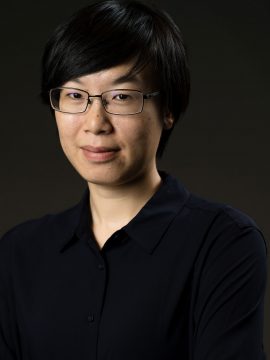Yuning Liu
Research Area
About
B. A., Chinese Literature, National Tsing Hua University, Taiwan
M. A., Theater Theories studies, Taipei National University of the Arts, Taiwan
Current studies: Ph.D. in Theatre studies
Supervisors: Siyuan (Steven) Liu
Research keywords: Taiwanese traditional and contemporary theatre, Taiwanese Studies and Sinophone Studies
Yuning Liu is a Ph.D. candidate in Theatre Studies at the University of British Columbia. Her research interests include the interplay between various xiqu (traditional Chinese theatre) genres in Taiwan, including jingju (Beijing opera), yuju (Henan opera), and kunqu (kun opera) and the interrelationship between xiqu, politics, national identity, and cultural policy. Her dissertation endeavours to deconstruct the presupposed commonality within the xiqu collective, interrogating its constructed uniformity and homogeneity. This inquiry scrutinizes the development of three non-indigenous xiqu forms that have been transplanted from China to Taiwan at diverse junctures, thereby challenging the entrenched Chineseness that has been ascribed to xiqu—encapsulating assertions of its traditionalism, its Chinese national identity, its Eastern essence, and its immutability. She contends that to appreciate the multifaceted and flexible nature of xiqu and to extricate it from the confines of a singular, fixed conceptualization, it is essential to rigorously dissect the deep-rooted perspective that perpetually casts xiqu in the role of a cultural emblem, inherently and inescapably Chinese in its essence.
